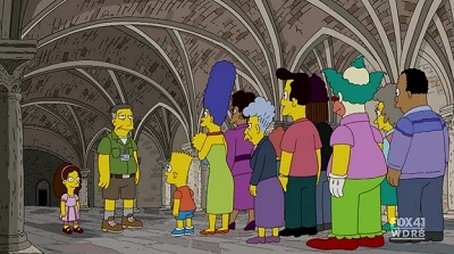
Sorry, we have not watched this yet.

The Simpsons family vacation in Israel with Ned Flanders, but Homer does not appreciate any of the culture—until an Israeli tour guide named Jakob shows him around and, in a severe state of dehydration, Homer believes he is the Messiah.
Sorry, we have not watched this yet.